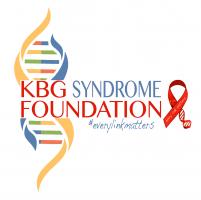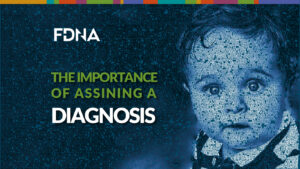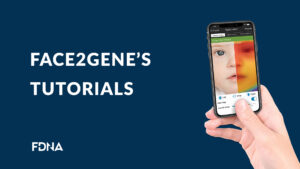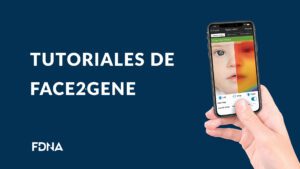Manchester, Md. – KBG Foundation, a U.S.-based nonprofit organization working to improve the lives of people with KBG Syndrome, is again collaborating with FDNA to grow its Face2Gene platform, a valuable tool that can lead to earlier diagnosis of rare genetic disorders. The platform uses facial analysis technology to make it easier for physicians to recognize clinical signs of KBG Syndrome or other disorders in their patients.
People with KBG Syndrome — a rare genetic disorder that causes a spectrum of health, learning, and behavioral challenges — may submit photos at different ages through a confidential Face2Gene portal. Face2Gene then digitizes the information to build its database.
Participating clinicians can use Face2Gene by uploading a photo of their patient, and the Face2Gene application analyzes the photo against its database to point to potential diagnoses.
“Years ago, the KBG Foundation was one of the first organisations to work with FDNA to help train the Face2Gene software,” KBG Foundation CEO Annette Maughan said. “We are excited to have this opportunity re-open. When we can help people with KBG Syndrome get diagnosed earlier, it’s better for them to get the care they need.” There is no existing cure or single treatment for KBG Syndrome. Patients today have to address each symptom individually, such as seizures, gastrointestinal problems, developmental delays, behavioral challenges, and more.
“In addition, we hope a growing community of people with confirmed diagnoses will continue to draw the attention of researchers who will focus their efforts on developing treatments for KBG Syndrome as a whole,” Maughan said.
People with KBG Syndrome are encouraged to join the Foundation’s closed KBG Syndrome Family Group on Facebook, where they may find support and learn from others with the syndrome as well as request the link to participate in Face2Gene.
ABOUT FACE2GENE AND FDNA
Face2Gene is a suite of phenotyping applications that facilitates comprehensive and precise genetic evaluations. FDNA, the developer of Face2Gene, uses facial analysis, deep learning, and artificial intelligence to transform big data into actionable genomic insights to improve and accelerate diagnostics and therapeutics. With the world’s largest network of clinicians, labs, and researchers creating one of the fastest-growing and most comprehensive genomic databases, FDNA is changing the lives of rare disease patients. For more information, please visit www.fdna.com.
ABOUT KBG SYNDROME
KBG Syndrome is a rare genetic disorder caused by a mutation in the ANKRD11 gene. It is associated with a spectrum of challenges, including developmental delays, cognitive disabilities, behavioral disorders, autism, seizures, hearing loss, skeletal anomalies, heart complications, and gastrointestinal problems. Most people with KBG share at least some physical traits, including a triangular face, heavy eyebrows, curved fingers and spine, and short stature.
ABOUT THE KBG FOUNDATION
The KBG Foundation is a 501(c)(3) nonprofit organization, dedicated to providing support, assisting in research programs, and advocating to raise awareness about KBG Syndrome. To learn more, visit kbgfoundation.com. Follow @KBGFdn on Twitter.



